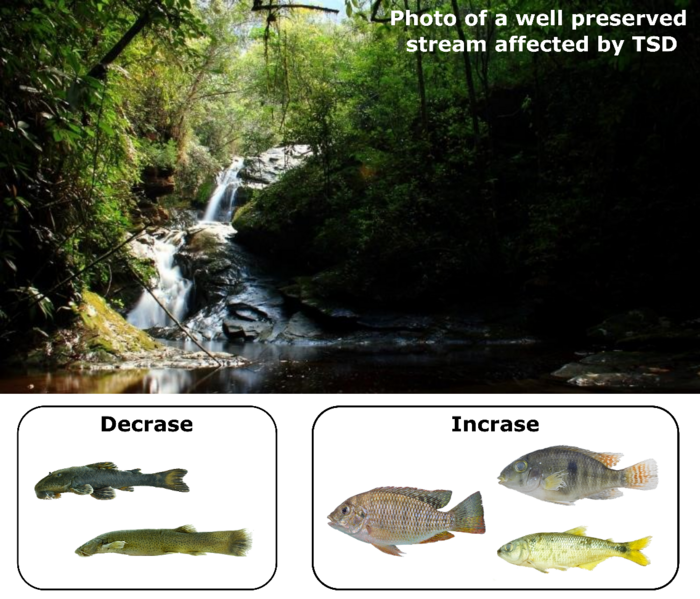Streams are complex habitats that can be affected by changes further upstream or downstream. Even small dams and reservoirs can modify significant ecological processes, such as fish migration and colonization.

Credit: The Authors
Streams are complex habitats that can be affected by changes further upstream or downstream. Even small dams and reservoirs can modify significant ecological processes, such as fish migration and colonization.
Tailings storage dams (TSDs) have been known to have an adverse effect on water quality; however, their implications on upstream fish assemblages have yet to be determined.
A team of researchers, led by Gilberto Salvador from the Federal University of Pará, Biological Sciences Institute, postulate there are at least three aspects that need to be considered: life-cycle disruption, species intolerance or tolerance to lentic conditions, and non-native species.
In their latest study conducted in the Rio Doce basin in Brazil, the researchers found that streams flowing into TSDs had fewer catfish species, including fewer armored catfish and fewer small predaceous catfish common to steep-slope streams. The findings are published in Water Biology and Security.
To collect fish, the team used standard methods in 24 sites, half draining to TSDs (dammed) and half free from this impact (undammed). To identify differences between treatments, they used permutational multivariate analysis of variance, or PERMANOVA, to test both environmental variables and the assemblages of fish in each waterbody, and evaluated the biological metrics that most influenced assemblage composition change.
“Despite natural forest cover in most of the catchment area we observed a decrease in these species that rely on stream continuity and high-quality water,” explained Salvador. “In comparison, two other widely tolerant species had increased in numbers along with one species commonly found in TSDs.”
The team attributed this to re-colonization barriers created by TSDs, as well as colonization sources for tolerant species.
“Our findings underscore the need to consider downstream alterations caused by TSDs when assessing reference conditions for biomonitoring and bioassessment studies,” concluded Salvador.
###
Contact the corresponding author: Gilberto Nepomuceno Salvador – [email protected]
The publisher KeAi was established by Elsevier and China Science Publishing & Media Ltd to unfold quality research globally. In 2013, our focus shifted to open access publishing. We now proudly publish more than 100 world-class, open access, English language journals, spanning all scientific disciplines. Many of these are titles we publish in partnership with prestigious societies and academic institutions, such as the National Natural Science Foundation of China (NSFC).
Journal
Water Biology and Security
DOI
10.1016/j.watbs.2023.100136
Method of Research
Observational study
Subject of Research
Animals
Article Title
Mine tailings storage dams modify upstream headwater fish assemblages
COI Statement
The authors declare that they have no known competing financial interests or personal relationships that could have appeared to influence the work reported in this paper.




